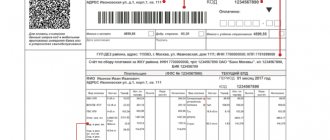Obtaining ownership of real estate is an operation that worries many citizens. In Russia there is such a thing as privatization. Various types of controversy often flare up around this action. Today, you can privatize your existing housing at any time. These are the rules that now apply in Russia. If you don’t privatize the apartment, what will happen? The consequences of refusing such a decision will be discussed below. In what cases is this possible? Who should carry out privatization and when? To what extent is failure to act dangerous and undesirable? The answer to all these questions is much easier than it seems. It is enough to know the basics of modern Russian legislation.
Concept
Let's start with the simplest. We are talking about decoding the mentioned concept. What is privatization called?
This procedure is the process of converting public housing into private ownership. Ultimately, the citizen receives an apartment/house/dacha as property.
The concept of privatization first appeared in Russia in 1991. From that moment on, under certain conditions, citizens were able to register state property as private property. This is a very useful feature. But if you don’t privatize the apartment, what will happen? Why do citizens sometimes refuse this operation? According to statistics, a third of housing in Russia is still state-owned.
Advantages of non-privatized housing
Of course, the privatization of municipal housing also has its drawbacks. First of all, it is important to point out that this is a very lengthy process, requiring the preparation of a lot of documents and visits to many officials, often several times. However, other disadvantages become noticeable after registration.
Firstly, this is mandatory taxation. Owners of privatized apartments cannot avoid this. Only residents of municipal housing do not pay. At the same time, annual percentage increases in taxes are planned at the state level. In addition, the amount depends on the cadastral value of the apartment, which is significantly higher than the market value in this matter.
Secondly, as already mentioned, an increase in utility bills, to which is added the operation of an apartment building with common household property. And, of course, it is worth mentioning more than once that there are still a lot of scammers in the real estate industry. In case of alienation and when exchanging an apartment, you will have to be extremely careful so as not to become the next victims of scammers. As practice shows, it is very rarely possible to bring them to justice even through the courts.
Right or obligation
Before understanding this issue, it is important to realize one more important fact. Not every citizen knows about it.
Is it necessary to privatize the apartment in which this or that family lives? Or can this operation be avoided?
According to the law, privatization is the right of residents, but not an obligation. If a citizen does not want to register ownership of the housing in which he lives, that is his business. The main thing is to remember some of the consequences of such a decision.
Is it possible not to privatize an apartment and live in it? Yes. As already mentioned, a third of the housing stock in the Russian Federation is still owned by the state. Therefore, privatization is the right of citizens. Each person makes his own decision about participation in the process if he is a resident of an apartment/house.
Paid or free privatization
Privatization can be paid or free. But the fee does not apply to housing. Paid privatization is actually the purchase of real estate from the state with all the ensuing consequences and actions. As a rule, only land and non-residential real estate can be privatized for a fee.
Free privatization of apartments has currently been declared indefinite, and if nothing changes, it will remain so for an unlimited period. It should be taken into account that free privatization is available only once in a lifetime for every citizen of the Russian Federation.
There is an exception to the last rule: minors can participate in privatization twice. The first time before reaching adulthood and the second time after that moment.
Why are they refusing privatization?
In order to understand the true reasons for refusing to exercise the right to obtain property free of charge, it is important to fully understand all the nuances of Russian legislation. Why don't people sometimes privatize their housing?
The point is that life in this case is simpler for some citizens. People living in a non-privatized apartment can register their children there. Such families live in housing under a social rental agreement. They have this right for life. It will not be possible to forcibly deprive non-privatized housing.
After the death of previous residents, the heirs registered in a particular territory acquire the right to use it for life. That is, you can register your children here and live all the time. But nothing more.
What are the dangers of living in a non-privatized apartment? It is noted that in this case, residents must fulfill only one condition - live in the house, paying all the costs of maintaining the property. Such a restriction is a plus for some - a guarantee of a peaceful old age.
In addition, citizens refuse privatization due to the dilapidation of housing. In other words, registering ownership of such property is unprofitable.
Another reason is taxation. The point is that housing users do not have to pay taxes for the apartment. And owners are responsible for their property.
In some cases, the refusal to privatize is caused by community, if you want to give up your share in an apartment in favor of one or another tenant.
How to receive a non-privatized apartment according to a will?
To exercise his right to inheritance, a citizen needs to contact a notary. If the ownership of the home is not formalized, the heirs will be denied a certificate of inheritance. The notary will invite the relatives of the deceased person to go to court. Moreover, it does not matter whether a testamentary disposition was drawn up or whether it is missing. When preparing a statement of claim, you must be guided by the provisions of the Code of Civil Procedure of the Russian Federation and the clarifications of the Plenum of the Armed Forces of the Russian Federation. Today there is positive judicial practice on issues of inheritance of non-privatized property.
Can I file a claim right away? Initially, you need to contact a notary so as not to miss the deadline for accepting the inheritance - 6 months from the date of opening of the inheritance . At the same time, you can file a claim, since non-privatized housing may not be the only object of inheritance. The purpose of going to court is to include housing in the inheritance. If the applicant turned to the notary on the eve of the expiration of the deadline and received a reasoned refusal to issue a certificate of inheritance, you can immediately file a claim for recognition of property rights.
Order and procedure
Interested parties need to prepare documents. The statement of claim is filed at the place of residence of the deceased employer. Civil cases are heard by magistrates and district (city) courts.
The application is made in writing, accompanied by evidence of the stated facts. The defendant is the state represented by the municipality. When filing a claim, you must also pay a state fee (see below).
Procedure:
- Establish the fact of death of the apartment tenant.
- Contact the registry office for a death certificate.
- Make an appointment with a notary, provide documents, a will.
- Receive a refusal to issue a certificate of inheritance.
- Go to court with a claim to include the property (non-privatized apartment) in the inheritance.
- Attend court hearings and read the decision.
- Take the court writ of execution to the notary's office.
- Complete the inheritance procedure.
Statement of claim
Below is a typical sample claim. If necessary, you can add relevant sections and circumstances.
Required documents
A package of documents must be attached to the statement of claim. The documents must clearly support the stated claims. Minimum list of papers:
- a copy of the statement of claim;
- death certificate of the employer;
- evidence of relationship with the deceased citizen;
- housing privatization agreement with the local administration;
- act of transfer of real estate;
- notarized application for inheritance;
- motivated refusal of the notary;
- appraisal document on the value of the property;
- proof of payment of state duty.
The list of documents is not exhaustive. If there are additional participants or circumstances, it can be expanded. The main thing is that the papers are relevant to the case.
Expenses
The basic cost item is state duty. This must be paid before filing a claim. The receipt is attached to the package of documents and the claim. The absence of a bank document may lead to refusal to accept the application (Articles 134-136 of the Code of Civil Procedure of the Russian Federation). The amount of the fee is calculated based on the value of the disputed property. In this case, the amount of the state duty consists of two parts (fixed rate + percentage of the difference in indicators).
Example. The testator wrote 2-room. a non-privatized apartment for his daughter. According to Rosreestr, the inventory value of a share in real estate was 182,312 rubles. Calculation of the amount of state duty – 4847 (3200 + 1647) rubles.
About the consequences
What happens if the apartment is not privatized by this or that person? In fact, such a decision is not too dangerous for some citizens. But it still has shortcomings.
If a citizen refuses privatization, he loses the right to receive ownership of the property. Nevertheless, he will still be able to live in the apartment throughout his life.
The refusal of one of the residents to privatize increases the shares in the property due to the others registered on the territory. This happens proportionally.
Please note that children under 14 years of age cannot apply for a waiver. After reaching this age and until adulthood, the process must occur with the permission and confirmation of the guardianship authorities.
To privatize or not?
The only option in which privatization is not particularly required: the tenant is an elderly person who has no relatives (or does not want to leave them an inheritance). For him, privatization will only become an additional problem, because payments will increase.
In all other cases, privatization of housing is an excellent opportunity to get your own real estate practically free of charge. And what to do with it next - use it as is or sell it and buy something more suitable - the owners can decide for themselves.
Registration of a municipal apartment into private ownership is a rather complex and lengthy procedure. Experienced lawyers will provide solutions to the main problems during a free consultation, however, in order to do everything as quickly as possible and with minimal effort, it is better to use the services of representatives.
FREE CONSULTATIONS are available for you! If you want to solve exactly your problem, then
:
- describe your situation to a lawyer in an online chat;
- write a question in the form below;
- call Moscow and Moscow region
- call St. Petersburg and region
Save or share the link on social networks
Author of the article
Natalya Fomicheva
Website expert lawyer. 10 years of experience. Inheritance matters. Family disputes. Housing and land law.
Ask a question Author's rating
Articles written
513
- FREE for a lawyer!
Write your question, our lawyer will prepare an answer for FREE and call you back in 5 minutes.
By submitting data you agree to the Consent to PD processing, PD Processing Policy and User Agreement
Useful information on the topic
4
Eviction from official residential premises
A certain (considerable) category of citizens of the Russian Federation lives in official housing. At…
4
Can they be evicted from an apartment if there is no other housing?
Forced eviction from a residential premises is an unpleasant phenomenon, one might say...
1
Privatization of land
What is land privatization? This is the actual purchase or receipt of land...
Privatization of land in SNT using a membership book
SNT is a gardening non-profit partnership, within which the main…
Privatization of land under a private house
Despite the fact that the right to privatize land already exists...
How many times can you participate in privatization?
Privatization is a free procedure for obtaining home ownership. How many…
Why is it necessary?
Some people are interested in why it is necessary to privatize an apartment. Based on all of the above, we can come to the conclusion that a citizen living in the territory under a social tenancy agreement cannot be kicked out onto the street. He will have the right to lifelong use of one or another housing.
Despite this, privatization has a number of advantages. They are the ones who attract the population. What is it about?
Why do you need to privatize an apartment? Why is privatization necessary? Among its main advantages are the following features:
- A citizen cannot be evicted for utility debts. You can go to court to collect the debt, but you will not be able to deprive the owner of the property. For failure to fulfill responsibilities for maintaining housing, the tenant may be evicted.
- An apartment or house is a reliable rear and investment. Free privatization allows you to acquire your own home without much difficulty.
- Registration and decision regarding who exactly to register. According to the law, the owner himself decides who to register in the housing. He may ask a citizen who refused privatization (for example, a former spouse) to leave the territory legally.
- Privatized housing is inherited.
- Property received from the state is transferred to the full ownership of citizens. They can perform any actions with an apartment or house - give, sell, bequeath, rent, alienate, exchange, and so on.
- As already emphasized, the owner has the right to rent out the property. Accordingly, privatized housing can become a means of making a profit.
If you do not privatize the apartment, you can only count on living in one or another housing. And nothing more. It won't be possible to manage it. Such rights remain with the property owners.
What to do if the property is not privatized?
Such property cannot be inherited due to its status - it is municipal property. Residents are only assigned the right to use the property (Article 7 of Law No. 1541-1 of 07/04/1991).
If the employer (tenant) has submitted an application for privatization of housing and has already begun to prepare the necessary documents, the housing can be assigned to the heirs in the event of sudden death.
Why is this allowed? It's all about timing - checking and processing documents takes at least two months, which means the procedure is delayed through no fault of the applicant (Article 8 of Law No. 1541-1).
Disadvantages of Privatization
Despite all the advantages of the process, privatization has a number of disadvantages. For some citizens they are extremely important. If you don’t privatize the apartment, what will happen? What are the disadvantages of this process? They should not be confused with the reasons for refusing to re-register property as private property.
The disadvantages of privatization are the following:
- Taxes. It's no secret that owners must pay for their property. Taxes must be remitted to the state annually. You will have to pay for privatized housing.
- Expenses for repairs and maintenance of housing. It is often impossible to obtain government assistance. In addition, the owner of the apartment, by law, takes responsibility for maintaining the property in good condition.
- Privatization of dilapidated or emergency housing is unprofitable. When moving such houses, you can only count on an apartment with an equal area.
Basically, that's all. But what happens if the apartment is not privatized? Who is recommended to implement such a process? What do experts say about this?
How to inherit a non-privatized apartment according to the law
The procedure for applicants is the same as when inheriting non-privatized housing under a will. The only difference is the absence of an order that determines the range of applicants. When inheriting by law, the primary heirs are children, parents, and living spouse.
Order and procedure
The heirs of the deceased citizen need to visit a notary and submit an application. If the property is not privatized, the heirs will be denied a certificate. After this, you can begin to prepare papers for the court.
The procedure for entering into inheritance according to the law:
- Collect documents confirming the fact of relationship with the deceased.
- Visit a notary, write an application.
- If you refuse, prepare for the trial (file a claim, collect documents, pay the state fee).
- Attendance at court hearings, receiving the final court decision.
- Repeated application to the notary for the issuance of a certificate.
Statement of claim
When going to court, you need to briefly outline the circumstances of the case. One of the points of the claim is a description of the fact of filing an application with a notary office. The claim will need to be accompanied by a reasoned refusal from the notary. Additionally, you need to refer to Resolution of the Plenum of the Supreme Council No. 8. The Supreme Court has already considered similar issues. Also, do not forget to display the value of the disputed object. Based on this, the amount of state duty is calculated.
You can download a sample statement of claim from the section above.
Required documents
The same documents as in the previous section are attached to the statement of claim. Only the will of the deceased is excluded from the list.
Expenses
When filing a claim, you must pay a state fee. It is calculated based on the cost of the claim . To determine the amount of the fee, you must contact Rosreestr for assessment work. You can also obtain information on the official portal of the government agency.
The most convenient way to calculate the amount of the state duty is on the website of the judicial authority - the calculation calculator will allow you to determine the nature of the dispute, the stated requirements and the amount of the state duty that follows them.
Real cases
What are the dangers of living in a non-privatized apartment? As has already been emphasized, citizens can only reside in a particular territory.
In real life, practice demonstrates the following consequences:
- residents are forced to be discharged;
- problems with the sale of property, since the apartment comes with an encumbrance in the form of tenants;
- non-privatized square meters cannot be transferred by inheritance into ownership;
- the actual impossibility of obtaining ownership of an apartment after abandoning it.
It happens that parents refuse privatization in favor of their children. But this is far from the most common scenario. More and more often, old people are trying to deprive children with an adventurous character of the opportunity to mortgage or sell their share, trying with this ban to save living space for themselves and their grandchildren. The motive is usually caution. Such a step not only deprives children of property, but also spoils family relationships.
Arbitrage practice
If there is proper evidence, courts periodically satisfy the claims of heirs to include non-privatized real estate in the inheritance. Also, the heirs are recognized with the right of ownership of housing. less than 6 months have passed on the date of adoption of the judicial act , then the court includes the property as part of the inheritance. After the expiration of the terms, the heirs are usually recognized as having ownership rights.
Possible disputes among heirs in court:
- Reinstatement of missed deadlines for filing an application at a notary's office.
- Establishing family ties with the deceased - for inheriting an apartment by law or by the right of compulsory share.
- The exclusion of individual heirs from the general circle is due to the status of “unworthy”.
- Accounting or exclusion of the property of the deceased from the inheritance.
Example. The court received a claim for recognition of property rights within the framework of inheritance. There were three applicants. The defendant was the Administration of the municipal formation of the Ulyanovsk region. The plaintiffs explained that after the death of their mother, an unregistered, non-privatized apartment was left behind. The will of the testator to privatize housing is confirmed by a statement. However, the woman did not have time to complete the paperwork. The case materials also included an agreement to transfer ownership of the living space. Due to the lack of a complete package of documents, the heirs cannot take over the rights. However, the deceased woman did not withdraw her application for privatization. The claims were satisfied. The plaintiffs were recognized as having ownership of the real estate (Decision of the Barysh City Court of the Ulyanovsk Region dated April 6, 2012, case No. 2-157/2012).
An entry in Rosreestr is made on the basis of a judicial act. Separately, a court decision is not a document of title to housing. This should be remembered when contacting Rosreestr to obtain an extract from the USRN (replaces certificates of ownership).
Who should I apply for?
If you don’t privatize the apartment, what will happen? This has already been discussed. Who is recommended to pay attention to privatization? And how exactly is a refusal to participate in the process formalized?
In reality, everything is much simpler than it seems. It is recommended to register ownership of an apartment:
- citizens with heirs;
- people who want to receive property from the state and will be able to bear the costs of its maintenance;
- strong families where everyone trusts each other.
Now it’s clear who should privatize the apartment. Expert advice often emphasizes that it is recommended to refrain from such a step:
- elderly people who want to provide themselves with a reliable rear in old age;
- persons who are not afraid of ruining family relationships;
- poor people who will not be able to pay taxes for their apartment and will not be able to cope with the maintenance of their housing;
- citizens who do not want to pass on inheritance disputes to relatives (children, grandchildren).
In fact, the decision on privatization, as already mentioned, is made by each person separately. No one can force you to take this step.
Is it possible to inherit a non-privatized apartment?
The Supreme Court granted citizens the right to inherit real estate that is in the process of registration (Resolution of the Plenum of the Supreme Court No. 8). The main criterion is the presence of documentary evidence of the citizen’s will regarding the privatization of the object.
If a citizen has submitted an application and entered into an agreement on privatization, his relatives (heirs) can inherit.
However, they will have to go to court to recognize ownership or include the apartment in the inheritance.
Registration of refusal
How do they refuse privatization? This must be done legally competently. Otherwise, other residents may experience a number of problems.
Registration of the refusal of privatization takes place at the notary. The citizen will have to:
- Collect a certain package of papers. A complete list of them will be presented below.
- Write a refusal text. The application is written in free form and submitted in writing.
- Submit the package of documents and the refusal to a notary. After the transaction is certified, the citizen will be considered to have refused privatization.
In fact, everything is much simpler than it seems. What documents will be useful for refusing to participate in the process being studied?
What can happen to people living in non-privatized housing?
As noted above, the person who signed the contract can safely use the apartment given to him for life. But in reality, in this case, municipal housing will not truly become your own.
The slightest violation of living conditions will allow the municipality to literally evict a person onto the street. At the same time, the presence of tenants who refused privatization will create problems for the remaining co-owners who decide to sell the resulting premises.
It is also impossible to bequeath a municipal apartment - it, regardless of the wishes of the responsible tenant, will pass after his death to those who are registered under the same roof with him.
Documents for refusal
Is it necessary to privatize an apartment? No. The citizen exercises this right at his own discretion. Among the documents requested by the notary are:
- application (it is better to draw it up from an authorized person);
- social rental agreement;
- identity card of a “refusenik” citizen;
- an extract from the house register;
- apartment personal account certificate;
- extract from the BTI;
- cadastral passport of housing.
It would be enough. Privatization is a serious decision with its consequences. Not everyone is ready to become the owner of state property.
Is shared ownership beneficial?
It is also worth knowing: what is shared privatization of an apartment, the pros and cons of such a process.
A problematic issue is the general privatization of an apartment, the residents of which do not have a unanimous opinion regarding the future owner of the property.
For example, children cannot decide the fate of the living space inherited from their parents where they are registered.
The apartment is a single property complex .
And it is impossible to privatize it piecemeal . As a result, the housing will be in shared ownership of all family members who were registered in it.
Of course, it will be possible to divide the apartment into parts , assigning, if possible, certain rooms to each of the owners. But in such a situation, privatization loses its main advantages.
Other owners will not allow you to dispose of the entire property, and it will be very difficult to sell one room . People are simply not ready to pay a lot of money for real estate and live, in fact, in a communal apartment, which the state has been trying to get rid of for so many decades.
Owning part of a residential property will not provide, in fact, any advantages for the owners, except for increased, albeit slightly, costs.
In this case, it is best to wait . One of the relatives may move, get discharged, or buy their own home. Children may appear in the family, which will make it possible to apply for a larger apartment .
If you have not yet managed to register ownership of your home, then read how to privatize an apartment under a social tenancy agreement. Find out here who should change the battery, electric meter and balcony in a privatized apartment.
6 ways to find out whether an apartment is privatized or not are described at the link.
Return of the right to privatization
It is clear what the consequences will be if the apartment is not privatized. Under certain circumstances, a citizen can regain the right to receive property in ownership. Such cases are rare. Typically, refusal of privatization deprives the tenant of the right to receive a share in the apartment/house.
Good reasons for returning the privatization right may be the following:
- The refusal was considered a mistake.
- If a citizen was forced to renounce the right to privatization. For example, threats or violence.
In this case, the plaintiff himself is obliged to prove the illegality of the privatization carried out without his participation. As already mentioned, such scenarios are extremely rare in practice.
Return of property to owner
Often the relatives of the testator lose property. The reason is the lack of legal rights to the property. If a person lived in an apartment alone and no other persons were indicated in the social tenancy agreement, such property cannot be inherited. The agreement with the owner of the premises is terminated due to the death of the tenant (Clause 5, Article 83 of the Housing Code of the Russian Federation). Social housing becomes the property of the municipality and is transferred to the next low-income family.
VIDEO:
Are the advantages of non-privatized housing stock lost forever during privatization?
Current legal acts provide the opportunity to carry out a procedure reverse to privatization. The process is associated with the alienation of property from an individual in favor of the state at the personal request of the person. To re-register the right to a municipality, the owner of the living space must contact the local government authority and submit a corresponding application. You do not need to indicate the reasons for your decision.
From the date of termination of the privatization deal and the return of housing to the Moscow Region, citizens must again enter into a social rent agreement. Together with the last tenants, the rights and obligations of tenants of premises are acquired. The procedure can only be carried out once, since the right to privatization is given once in a lifetime. So, you won’t be able to change your mind, so the decision should be well thought out and submitted to the family council. A repeated application for re-registration of real estate is available to children who have reached the age of majority.
What restrictions are placed on registering new residents?
Residents who are not property owners should be aware of registration restrictions. So, owners have the right to register anyone they want. The number of temporarily or permanently accommodated persons is not taken into account. In addition, the owner has the right to evict any tenant from the property at his own discretion (this does not apply to minors and if they have the right to unlimited use of square meters).
Moving into municipal housing has significant restrictions. These include the need to obtain consent from the authorized body (landlord) for registration of third parties. Moreover, the latter must be relatives of the tenant included in the social tenancy agreement. Other citizens have the right to register with the consent of the owner and in strict compliance with the living space per person norm. Thus, the entry and temporary registration of an unlimited number of persons is prohibited by current legislation.
After people have moved in, tenants do not have the right to forcibly evict them. This issue is within the competence of the municipality. However, in some cases, a person who has entered into an agreement with an authority manages to cancel the registration in court.
How to sell council housing
There are two types of living space: those that are subject to privatization, but for some reason the residents did not register their ownership, and those that, in principle, cannot become private ownership. The latter include:
- dorm rooms;
- housing in closed military camps;
- service apartments;
- emergency housing;
- square meters whose owners are against privatization;
- rural houses managed by social protection authorities.
If square meters do not fall into any of the categories, then privatization is possible. The easiest and most legal way to sell a non-privatized apartment is to register ownership of it and sell it according to the standard procedure. But residents do not always have the funds to buy an apartment from the municipality, and therefore, if they want to change their place of residence, they have to use workarounds.
Attention! There is no way to legally sell an apartment if it is not privatized, under a standard sale and purchase agreement. Agencies or realtors who offer services for transactions of this kind are scammers.
Sources
- Pilipchuk G.D. Customs law. Short course. Tutorial; Prospect - M., 2004. - 294 p.
- Marina Yuryevna Yakovleva Citizenship. Registration; Yurayt - M., 2015. - 864 p.
- Traffic rules with comments and illustrations 2014 (with all the latest changes) / Absent. - M.: Eksmo, 2014. - 947 p.
- Yuri, Fedorovich Bespalov Cases of inheritance: some controversial issues of law enforcement. 2nd edition / Yuri Fedorovich Bespalov. - M.: Prospekt, 2014. - 700 p.
- Law and Economics No. 03/2010 / Absent. - M.: Justitsinform, 2010. - 391 p.
Do families with many children need to register housing as their property?
Next you will find out: what is a privatized apartment, what does this process mean for large families? And why is it not beneficial for such citizens?
Another case when people should postpone privatization is when a large family is living in a state apartment.
Such families, as is known, are under special tutelage of the state , and very rarely have free funds.
Is it profitable to privatize an apartment for a large family? No, an increase in the cost of living for parents with many children can be a serious blow to the budget .
In addition, you can always claim to improve your living conditions by obtaining a new state apartment to replace the old one, where the number of square meters per person no longer meets the standards.










